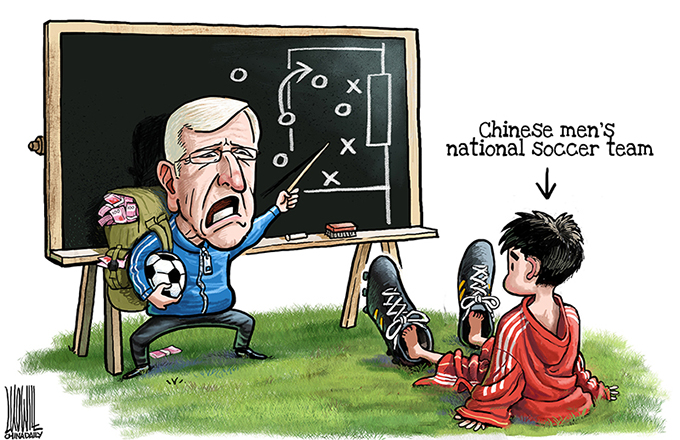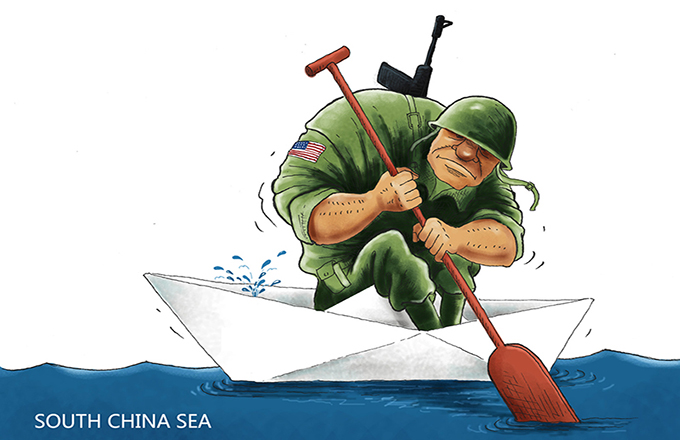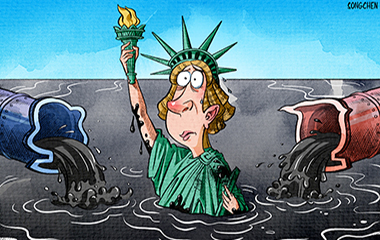Time to act on reform
Unbalanced, unstable, uncoordinated and unsustainable economy risks losing its capacity for resilience
Once again, China has defied the naysayers. Economic growth picked up in the final quarter of 2012 to 7.9 percent - half a percentage point faster than the 7.4 percent increase in GDP in the third quarter. This was a meaningful increase after 10 consecutive quarters of deceleration, and it marks the Chinese economy's second soft landing in slightly less than four years.
Despite all the talk about the coming shift to internal demand, China remains heavily dependent on exports and external demand as major drivers of economic growth. It is not a coincidence that its last two slowdowns followed closely on the heels of growth slumps in its two largest foreign markets, Europe and the United States. Just as the soft landing in early 2009 occurred in the aftermath of the horrific US-made crisis, this latest one followed the European sovereign debt crisis.
China has several sources of strength that have enabled it to withstand the tough external shocks of the last four years. Large buffers of saving, 53 percent of GDP, and foreign-exchange reserves, $3.3 trillion are at the top of the list. Moreover, unlike the West, which has used up most of its traditional countercyclical policy ammunition, China has maintained ample scope for adjustments of fiscal and monetary policy as circumstances dictate. Likewise, a powerful urbanization dynamic continues to deliver solid support for China's high-investment economy, while enabling relatively poor rural workers to raise their incomes by finding higher-paying jobs in the cities.
Nonetheless, this may be the last time that China can escape an external shock with its growth intact. Premier Wen Jiabao addressed this possibility nearly six years ago, arguing in March 2007 that the seemingly spectacular Chinese economy had become "unstable, unbalanced, uncoordinated, and ultimately unsustainable".
Since then, many of China's inherent strengths have been sapped by all-too-frequent external shocks. The banking sector is still digging out from the bad loans extended in the aftermath of the global meltdown in 2008. Finding affordable housing has become an increasingly serious problem for those relocating to cities for the first time. And corruption scandals and the related risks of political turmoil were unsettling, to say the least, in the months prior to last year's Communist Party leadership transition.
In other words, the vulnerability implied by Wen's "Four Un-s" has increased significantly. China's economy has certainly become more unstable, with major slowdowns in real GDP growth in 2009 and again in 2012. Its imbalances have worsened as well, with the investment share of GDP approaching 50 percent and private consumption falling below 35 percent of GDP.
Similarly, China has become more uncoordinated, or fragmented, as its income disparities have continued to widen. And sustainability is being jeopardized by environmental degradation and pollution, which pose a growing threat to the country's atmosphere and water supply.
In short, China's growth model has been stretched as never before. And, like a piece of fabric, the longer it remains stretched, the longer it will take to return to its former resilient state - and the greater the possibility that it will not spring back the next time something goes wrong.
The message to China's new leadership is unmistakable: There has never been a more urgent time to get on with the heavy lifting of rebalancing and reform. Now is the time to implement the measures that will accelerate the transition to a more consumer-led economy.
The agenda is long, but it is hardly a secret. It includes developing the services sector, funding the social safety net, liberalizing the antiquated hukou or residential permit system, reforming State-owned enterprises, and ending financial repression on households by lifting artificially low interest rates on savings.
Failure to act quickly on this program would leave China far too vulnerable to the inevitable next shock in a crisis-battered world. In the absence of rebalancing, any one of several potential tipping points could seriously compromise the economy's ability to pull off another soft landing: deteriorating credit quality in the banking system; weakening export competitiveness as wages rise; key environmental, governance, and social problems, namely, pollution, corruption, and inequality; and, of course, foreign-policy missteps.
The Chinese economy has come through two major global crises in the past four years. On the surface, its resilience has been impressive - the first to recover, as Chinese leaders always want to remind the rest of the world. But beneath the surface an unbalanced, unstable, uncoordinated, and unsustainable economy risks losing its capacity for resilience. Without rebalancing and reforms, the days of the automatic Chinese soft landing may be over.
I have been an optimist about China for 15 years. I still am. But the clock is ticking. Wen Jiabao's critique six years ago was a powerful diagnosis of the Old China's flaws that pointed to the Next China's hopes and dreams. It remains a blueprint that China's new leadership cannot ignore. Time is no longer on China's side. It must act now.
Project Syndicate
Stephen S. Roach, a faculty member at Yale University and former Chairman of Morgan Stanley Asia, is the author of The Next Asia.
(China Daily 02/01/2013 page8)



















